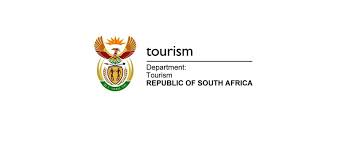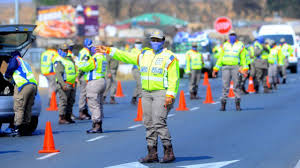How to Apply for Skills Development Programmes at Department of Tourism

Skills Development Programmes
1. Wine Service Training Programme
The Wine Service Training Programme (sommelier) which provides training of unemployed youth to widen employment opportunities in the hospitality and tourism sector.
Qualification offered: A Skills Programme Certificate, targeting unemployed youth beneficiaries for the duration of three months. Training is accredited by Culture, Arts, Tourism, Hospitality and Sport Sector Education, Training Authority (CATHSSETA) and South African Sommelier Association (SASA).
Criteria for selection of beneficiaries are as follows:
- Applicants should be between the age of 18-35;
- Matric with fluency in English or Tourism and Hospitality Qualification (provide certified copies of certificates);
- Certified ID copy (South African Citizen);
- Unemployed youth including people with disabilities;
- Proof of residence, and any other relevant certificate/s;
- The beneficiaries receive a daily stipend of R150;
- Beneficiaries who have participated in the Department’s learnership or skills programmes previously, must declare in the motivational letter.
Enquiries can be sent to skillsdevelopment@tourism.gov.za
2. Chefs Training Programme Professional Cookery
The Chefs Training Programme Professional Cookery, which provides training for unemployed youth to widen employment opportunities in the hospitality and tourism sector.
The programme aims to train unemployed youth in professional cookery. It comprises of 30% theory and 70% practical training.
Qualifications offered: The skills programme is for the duration of six months and targets unemployed youth.
Criteria for selection of beneficiaries are as follows:
- Applicants should be between the age of 18-35;
- Matric with fluency in English or Tourism and Hospitality Qualification (provide certified copies of certificates);
- Certified ID copy (South African Citizen);
- Unemployed youth, including people with disabilities;
- Proof of residence, and any other relevant certificate/s;
- The beneficiaries receive a daily stipend of R150.
Enquiries can be sent to skillsdevelopment@tourism.gov.za
3. Food Safety Quality Assurers Training Programme
The Food Safety Quality Assurers Programme provides training for unemployed youth to widen employment opportunities in the hospitality and tourism sector and is targeting unemployed youth.
The programme is aimed at youth in professional cookery. It comprises of 30% theory and 70% practical training.
Qualifications offered: The skills programme is for the duration of six months targeting unemployed youth beneficiaries.
Criteria for selection of beneficiaries
- Applicants should be between the age of 18-35;
- Matric with fluency in English or Tourism and Hospitality Qualification (provide certified copies of certificates);
- Certified ID copy (South African Citizen);
- Unemployed youth including people with disabilities;
- Proof of residence, and any other relevant certificate/s;
- The beneficiaries receive a daily stipend of R150;
Enquiries can be sent to skillsdevelopment@tourism.gov.za
4. Hospitality Youth Training Programme: Food and Beverage
The Food and Beverage Programme provides training for unemployed youth to widen employment opportunities in the hospitality and tourism sector.
The programme aims to train unemployed youth in professional cookery. It comprises of 30% theory and 70% practical training.
Qualifications offered: The skills programme is for the duration of six months targeting unemployed youth beneficiaries.
Criteria for selection of beneficiaries
- Applicants should be between the age of 18-35;
- Matric with fluency in English or Tourism and Hospitality Qualification (provide certified copies of certificates);
- Certified ID copy (South African Citizen);
- Unemployed youth including people with disability;
- Proof of residence, and any other relevant certificate/s;
- The beneficiaries receive a daily stipend of R150;
- Beneficiaries who have participated in the Department’s learnership or skills programmes previously, must declare in the motivational letter.
Enquiries can be sent to skillsdevelopment@tourism.gov.za
5. Tourism Monitors Programme
The Tourism Monitors Programme is the safety programme which is implemented under the auspices of the Expanded Public Works Programme. The programme involves training, mentorship and deployment of unemployed youth in identified tourism attractions and sites in all nine provinces. The key objectives of the programme includes enhancing tourism safety awareness at key tourism attractions and sites, upskilling of unemployed youth and reducing tourist vulnerabilities.
The key performance areas of the recruited Tourism Monitors include but not limited to:
- patrolling within the identified attractions and sites;
- guarding of tourist busses and vehicles;
- raise tourism awareness and provide information to tourists;
- alert the South African Police Services (SAPS) of suspicious crime incidents (ears-and eyes of SAPS);
- report any crime incidents to SAPS or other relevant enforcement agencies;
- attend to crimes likely to affect tourists (i.e.) car hijacking, motor vehicles theft, robbery and burglary;
- assist in tourist victim support (tourist in distress); and
- Provide basic tourism information about attractions and the country.
The Tourism Monitors are trained in various accredited skills related programmes like Tourist Guiding, Occupational Health and Safety, Customer Care, and Safety and Security Skills Programme accredited by Security Sector Education and Training Authority (SASSETA).
The programme has been implemented in three phases and is currently on the third phase. The training for this phase will be centred on the National Certificate: General Security Practices NQF Level 3 accredited by SASSETA.
Criteria for selection of beneficiaries. Tourism Monitors should:
- be a South African citizen;
- be 35 years and less and fluent in English;
- have matric certificate;
- have clean criminal record;
- reside within the respective local municipality/ community closer to the attraction;
- be in close proximity to host employers and training venue (accessible by public transport);
- not more than one (1) beneficiary per household;
- The training programmes targets predominantly youth; however, the programme can accommodate two percent (2%) of beneficiaries above 35 years;
- where there are insufficient numbers of women or youth, men who meet the criteria shall be included for participation in the programme;
- priority should be given to those beneficiaries who have not participated in any EPWP/ departmental funded projects in the last two years;
- beneficiaries who have completed at least Grade 12 should be considered for training in a qualification or a learnership NQF 2 upwards; and
- be selected from one of the following categories:
- Unemployed matriculants preferably who have studied travel, tourism and hospitality related subjects at matric.
- Persons retrenched from the tourism industry and presently unemployed (at least for a year); and
- Unemployed tourism related graduates
The Department issues payment of stipend (R200 per day X 23 days) in accordance with the Sectoral Determination No.5 of Learnership issued by the Department of Labour; provide funding for personal protective equipment; and provide work station (e.g.) Gazebo, where there is a need.
Enquiries can be sent to jmatlala@tourism.gov.za
6. Tourist Guide Training
Tourist guiding is a critical component of the tourism value chain as it plays an essential role in creating a positive image of our country.
In South Africa, tourist guiding is a regulated profession governed by national legislation and policies. Any person that would like to become a tourist guide must undergo training as part of a formal qualification, registered by the South African Qualifications Authority (SAQA). Upon being deemed competent, such person will receive a certificate issued by the Culture, Arts, Tourism Hospitality and Sports Sector Education and Training Authority (CATHSSETA) or any other accredited institution. Successful candidate must then apply to the relevant Provincial Registrar to be registered in order to operate legally.
The role and function of a guide is to organise, inform and entertain. Guides are mainly freelance and self-employed and often work seasonally and irregular hours. Work is usually obtained through direct contact with tour operators and other agencies and therefore, guides must be self-sufficient and be able to market themselves.
The Department has been funding up-skilling programmes for existing tourist guides in order to enhance the services offered by tourist guides as well as Tourist Guide Training Programmes for new entrants who wish to pursue careers in tourist guiding. Programmes are usually implemented at a provincial level and are advertised in local community newspapers. The training is often needs-based and aims to address the skills shortages within the sector. Therefore, the criteria for the selection of beneficiaries vary and are dependent on the nature of the training intervention.
Enquiries can be sent to: TGtraining@tourism.gov.za
LATEST JOBS SA
- SA Graduate QA Engineer – Kickstart Your Career
- YES Programme Bidvest International Logistics 2025
- Receptionist Agrinet Bellville – Join Our Team
- Admin Clerk White River – BUCO White River
- Learner Human Resources Administrator Rustenburg – SBV



0 Comments